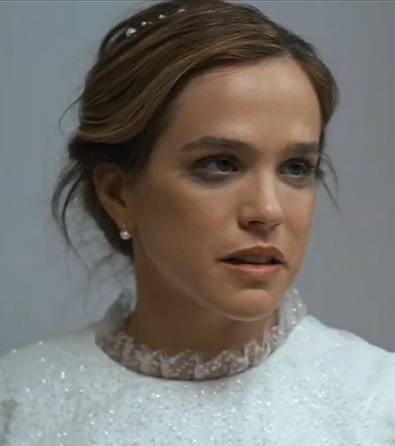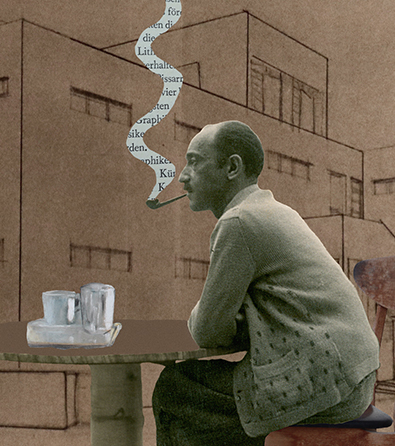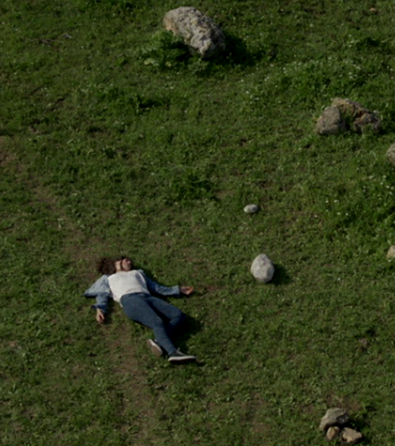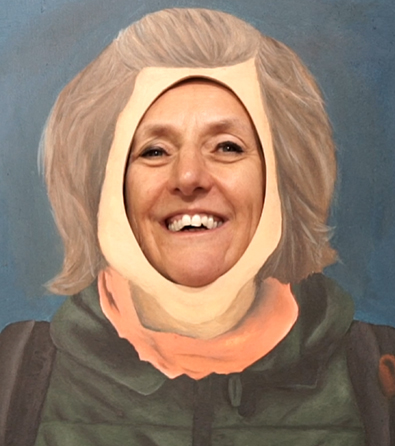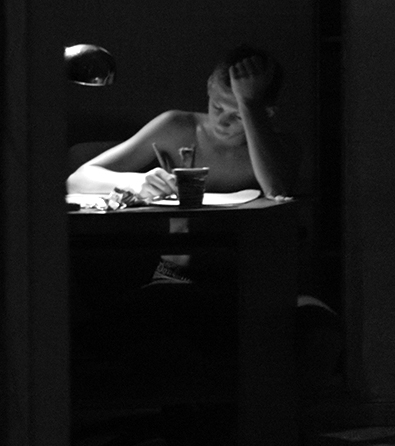The short film Committed (20 minutes) is available at the top of the page.
* To watch this film, please approve YouTube/Vimeo cookies via the blue cookie icon at the bottom left of the screen.
Even before Committed won the Ophir Award for Best Short Film, a critical consensus had already formed around it. The film premiered at the Haifa International Film Festival and was later screened at the Tel Aviv International Student Film Festival, where it won Best Independent Film. Many consider it one of the best Israeli short films of recent years.
There are several reasons for this: the excellent screenplay by Bat-El Moseri, who also plays the lead alongside Lital Schwartz; the meticulous direction of the actors by Lee Gilat, which gives each character a distinct intensity; and ensemble dynamics that form a tangled emotional triangle, marked by restraint and nuance achieved through her direction. Other filmmaking departments operate here at the highest level: brilliant casting, not only for the father; frantic cinematography that mirrors the characters’ emotional turmoil; and the set design of the father’s apartment. The apartment is presented as a suffocating, confining space, yet also as a place of comfort, something that can still, or once could, be called home.
The story centers on the morning when the protagonist, Batya (Bat-El Moseri), realizes after a long period of denial that she must hospitalize her father, who suffers from bipolar disorder. With the help of her sister, Lea, the family’s responsible adult, who insists from the outset on hospitalizing their father, Batya gradually understands that this difficult decision is the right one under the circumstances. Throughout the film, each character wrestles with personal conflicts and with family tensions arising from the father’s mental state. Batya appears to depend on his approval, since she does not receive love and validation elsewhere, though viewers may also read the affection and closeness he projects toward her as deliberate manipulation meant to divide the sisters. By contrast, Lea, the more serious and successful of the two, seeks familial closeness and love, yet finds herself trapped in the role of the responsible one in this triangle, viewing the others as impeding her life and progress with their childish behavior.
In my view, the film’s key scene, and Batya’s emotional turning point, is the meeting between the two sisters and the psychiatrist, who initially refuses to hospitalize their father. Here, the film’s complexity surfaces most clearly, as the forces at play collide: the need for love and family; the fine lines between sanity and madness; and the boundary between genuine care and coercion. The sisters become formally responsible for their father, a heavy price to pay, even though he, it seems, was never their caregiver as they were growing up.
Immediately after this scene, Batya and Lea sit on a hospital bench and talk while their father watches them through the window frame, a composition also used on the film’s official poster. It is a brief moment of pure cinema in which the mise-en-scène carries the story, and words are unnecessary. Framed in the window like a prisoner, the father cannot escape what lies ahead, nor can he sway Batya, who until now has acted to please him, driven by a need for his love and approval. The image unmistakably echoes, likely by design, the iconic scene in Orson Welles’s Citizen Kane, where the decision is made to send young Charles Kane away to be raised by guardians, his future determined without his say. Whether read as direct homage or as incidental cinematic resonance, it adds another layer to Committed and underscores once more that this is a work of depth, complexity, and intelligence.
Above all, it is worth returning to the performances, the foundation on which the film’s other strengths rest. Dover Kosashvili, who plays the sisters’ father, channels the inexhaustible energy long associated with his public persona as both actor and director. In my view, this is his finest performance. In recent years Kosashvili has appeared as an actor in several Israeli films, among them Gur Bentwich’s Peaches and Cream, and he has often stolen the spotlight. Here, however, the actresses opposite him are so compelling that he does not pull focus; instead he helps raise the film’s overall level. Bat-El Moseri and Lital Schwartz portray the sisters with meticulous, powerful performances. They convey the characters’ complexity while sustaining a very high level of intensity throughout the film.
Committed is anything but ordinary. It is a singular eruption of energy and talent. The film surges with shouting, outbursts, and anger, yet makes room for silences and compassion, where the script’s intelligence and the actresses’ craft reveal themselves with clarity. In Israel today, five years after its first screening, the public sphere feels more violent, noisier, more fractured, more embattled. Precisely for that reason, this film, which searches for tenderness within such a reality, has broader relevance. It is a cinematic quest for normalcy, for ordinary days.

